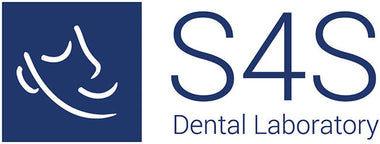Could Headaches Be Caused by Jaw Clenching?
Waking up with a headache is never a great start to the day, especially when the reason behind it isn’t clear.
For many people, morning headaches are a regular occurrence, often brushed off as poor sleep or dehydration.
But there is another, lesser-known, cause that is often overlooked: jaw clenching during sleep.
If you regularly start the day with a sore head, facial tension, or tightness around your jaw, you could be experiencing nocturnal bruxism
The good news is that it can be managed effectively with the right support and treatment.
What causes jaw clenching?
Jaw clenching, or sleep-related bruxism, is a condition where the jaw muscles contract tightly during the night, often happens without the person realising.
It’s more common than you might think and is usually triggered by:
- Stress
- Anxiety
- Sleep disturbances
- Bite misalignment.
Unlike occasional teeth grinding or light tension, persistent clenching can have a real impact on your wellbeing.
It puts continuous strain on the chewing muscles (especially the masseter and temporalis) leading to jaw pain, worn-down teeth, and, commonly, morning headaches.

How jaw clenching causes headaches
When you clench your jaw, you’re essentially overworking the facial muscles while you sleep.
This can result in muscle fatigue, inflammation, and pressure around the temples and forehead.
The temporalis muscle, in particular, is a common source of tension-type headaches.
Over time, this tension can also affect your jaw joints (TMJs), which may cause pain that radiates to the ears, neck, or shoulders.
Signs that jaw clenching may be the cause of your morning headaches include:
- A sore or tight jaw when you wake up
- Clicking or popping in the jaw
- Difficulty opening your mouth wide
- Discomfort when chewing or speaking
- Tooth sensitivity or visible wear on the biting surfaces
Why do people clench their jaw in their sleep?
Sleep bruxism often stems from physical or psychological stress.
During sleep, the body doesn’t regulate muscle activity the same way it does during the day, which means stress responses, like clenching, can become exaggerated.
Other contributing factors include:
- Sleep disorders, such as sleep apnoea
- High caffeine or alcohol intake, especially before bed
- Daytime habits, such as jaw tension while concentrating
- Bite alignment issues, which put the jaw under extra strain
Although occasional clenching isn’t usually a cause for concern, frequent or intense clenching can lead to long-term problems with your teeth, muscles, and overall comfort.

Can you stop clenching your jaw?
Jaw clenching can feel like an automatic habit that's difficult to control, particularly during sleep, but there are several practical steps that may help reduce how often and how severely it occurs.
1) Practise stress management techniques, such as meditation, mindfulness, or deep breathing, particularly before bed
2) Stretch or massage the jaw muscles to help them relax before sleep
3) Limit caffeine and alcohol in the evening, as both can increase muscle tension and disrupt restful sleep
4) Be aware of daytime habits, like clenching during focus or stress – try to keep your teeth slightly apart when not eating or speaking
5) Use a warm compress on the sides of the face to ease muscle tightness
These lifestyle changes can help, but if the clenching continues or is already causing issues, it’s worth speaking to your dentist.
How the Sleep Clench Inhibitor (SCi) can help
For people experiencing frequent headaches, jaw pain, or worn teeth caused by clenching, a dental appliance can be a game-changer.
The Sleep Clench Inhibitor (SCi) is a small but highly effective device that helps stop the jaw muscles from overworking during sleep.
It does this by preventing the back teeth from making contact, which interrupts the clenching reflex and eases the pressure on the jaw.
Benefits of using the SCi include:
- Reduced muscle tension and fewer headaches
- Protection for teeth against grinding and wear
- Less stress on the jaw joints
- Improved sleep quality due to reduced discomfort
The SCi is custom-made for comfort and designed to fit discreetly.
It’s especially helpful for people who wake up with persistent headaches or facial tension and are looking for a long-term solution.

When to speak to your dentist
If you're dealing with unexplained morning headaches, jaw tightness, or signs of teeth grinding, don’t ignore it.
Untreated bruxism can lead to serious damage over time, both to your teeth and your quality of life.
A quick consultation with your dentist can confirm whether clenching is the root of the problem.
They’ll assess your bite, check for signs of muscle overuse, and recommend the right treatment – which may include a device like the SCi.
With the right support, you can protect your teeth, reduce painful symptoms, and wake up feeling well-rested again.
Simply speak to your nearest SCi dentist today!

